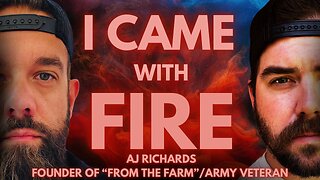How Drug Related Cues Improve Memory | Why Addiction Is So Memorable. FPS#8
Addictive drugs are said to often worsen memory, and anecdotal reports of drug-users with poor memory are abundant. But what if these reports are wrong? What if drugs of abuse can improve memory under particular circumstances? In this episode, Michael Wolter - Neuroscience PhD Candidate from the University of Guelph - joins us to discuss how Heroin and other drugs of abuse (including cocaine & nicotine) can enhance memory for events immediately preceding drug intake. This work has vast implications for the development of addiction, and for preventing relapse to addictive drugs. In fact, drug-linked experiences stored in the brain's long-term memory centres are believed to be largely responsible for relapse to drug seeking behaviour and drug abuse, even after long periods of successful abstinence.
Manuscript: Modulation of object memory consolidation by Heroin and Heroin-conditioned stimuli: Role of opioid and noradrenergic systems. Published in the journal European Neuropsychopharmacology: https://www.ncbi.nlm.nih.gov/pubmed/32067860
Abstract
There is recent evidence that cocaine, nicotine, and their conditioned stimuli have the ability to enhance memory consolidation. The present study compared the effects of post-training Heroin and of a drug-paired contextual conditioned stimulus (CS+) on consolidation of object recognition memory and investigated the roles of opioid and beta-adrenergic receptors in Heroin/CS+ memory modulation by co-administering the respective antagonists, naltrexone (NTX) and propranolol (PRO). Three experiments were performed in male Sprague-Dawley rats demonstrating that immediate, but not delayed, post-sample exposure to Heroin (0.3, 1 mg/kg), or exposure (30 min) to a contextual CS+ paired with 1 mg/kg Heroin (5 pairings, each 120 min), equally enhanced object memory. Importantly, while the memory enhancing effects of 1 mg/kg Heroin and of the contextual CS+ were not altered by post-training co-administration of 3 mg/kg naltrexone, they were blocked by post-training co-administration of 10 mg/kg propranolol. Taken together, these data suggest that a context paired with Heroin shares the memory enhancing effect of Heroin itself and that these unconditioned and conditioned drug stimuli may modulate memory through the activation of beta-noradrenergic receptors.
KEYWORDS:
Conditioned stimulus; Heroin; Memory consolidation; Naltrexone; Object recognition; Propranolol
Use Filmora To Create Great Quality Videos - 20% off Link: http://tiny.cc/b86pkz
___________________________________________________________________________________
Interested in cutting-edge neuroscience research? Tired of exciting information being hidden behind those pesky paywalls? Introducing the First-Person Science Podcast: The 1st and only podcast dedicated to in-depth exploration of neuroscience research articles with first-hand perspectives and narratives from the authors themselves.
FPS introduces a new way to discover and engage with neuroscience research. We aim to break-down barriers to science communication by explaining jargon and complicated concepts in entertaining and succinct ways in a 'journal club' style to encourage collaboration and discussion between scientists and the public, alike.
In each episode, a scientist joins the show to speak about their recent 'first-author' manuscript. We walk viewers through each figure "1 bar graph at a time" using panel-to-panel summaries with video and visual illustrations to aid understanding of complex topics.
Listeners can expect to learn cool facts and get a general background for everything related to the episode's journal article through a visually immersive 'journal club' approach to the podcast, Ft. narratives and first-person perspectives from the authors/scientists themselves. It's a fine line to manage, but we're doing our best! And the more feedback from people from all levels of background/understanding, the better!
Listen to our podcast on itunes, spotify, or wherever you get your podcasts. Direct audio download link: https://firstpersonscience.podbean.com
RSS Feed: https://feed.podbean.com/firstpersons...
Follow us on Twitter to stay up to date on the latest research: @firstpersonsci
Facebook: https://www.facebook.com/First-Person...
Instagram: https://www.instagram.com/firstperson...
Interested in increasing exposure for your published research? Curious about becoming involved with the show? Email us: firstpersonsciencepod@gmail.com.
Sources for Further Education & Reading: https://online-learning.harvard.edu/course/fundamentals-neuroscience-part-2-neurons-and-networks?delta=0
-
 1:05:33
1:05:33
Glenn Greenwald
1 day agoJournalist Chris Hedges on Media, Terror, Gaza, and More | SYSTEM UPDATE #338
80.6K122 -
 1:14:10
1:14:10
Talk Nerdy 2 Us
19 hours agoHacks, Leaks & Big Tech Control: Is Your Data Under Siege by Shadow Powers?
37.3K6 -
 UPCOMING
UPCOMING
I_Came_With_Fire_Podcast
8 hours agoFood Security & the American Beef Industry: AJ Richards on Supply Chain Risks & The SUSTAINSAct
23.2K2 -
 4:41:10
4:41:10
Tundra Gaming Live
9 hours agoThe Worlds Worst Horror Streamer Has Heart Attack Playing Phasmophobia
50K8 -
 1:38:24
1:38:24
JoBlo Originals
6 hours agoFriday Night Flicks!
54.1K8 -
 5:09:20
5:09:20
Nerdrotic
11 hours agoAgatha All Along Geyest Show EVER! Rings of Power Girl POWER! - Friday Night Tights #320 Jonny Law
114K29 -
 1:18:43
1:18:43
Edge of Wonder
8 hours agoPager Explosions: How Technology Can Be Used Against Us
60.8K10 -
 8:19:47
8:19:47
Akademiks
13 hours agoDiddy Arrest Footage LEAKED! Police Say He's ON S*ICIDE watch after Being Locked up in MDC BROOKLYN
175K73 -
 11:44:20
11:44:20
Total Horse Channel
18 hours ago2024 WDAA World Championship Show | Friday | Arena One
62.7K1 -
 4:16
4:16
The Worlds Funniest Animals
8 hours agoAnimals Gone Wild Compilation
49.6K9